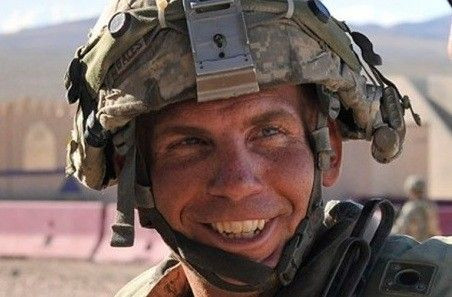'Afghan Rampage' Soldier Officially Charged With Murder

U.S. Army Staff Sgt. Robert Bales was charged with the murder of 17 Afghan civilians on Friday.
Charged with 17 counts of premeditated murder, the 38-year-old soldier could face the death penalty if convicted.
Bales, a father of two from Lake Tapps, Wash., was officially informed of the charges just before noon, the Associated Press reported.
On the morning of March 11, Bales reportedly left his base outside Kandahar and headed for two villages, where he allegedly went house to house killing civilians.
A total of 17 people -- four men, four women, two boys, and seven girls, the AP reported -- were dead by the time the soldier returned to his base and was taken into custody.
This week, Bales, who is being held at a military detention facility at Fort Leavenworth in Kansas, said he didn't remember the rampage, and he is reportedly in shock, his attorney said.
He has some memories of before the incident and he has some memories of after the incident. In between, very little, attorney John Henry Browne told the AP after meeting Bales for the first time on Monday.
He's in shock. He's fixated on the troops left on the ground, and what they're accusing him of, and how that might have negative ramifications on his friends and compatriots, Browne said.
The charge of premeditated murder suggests prosecutors will argue the killings were planned in advance, and were not prompted by a temporary loss of sanity.
Speaking to the AP, an unnamed military legal expert said a defendant does not have to consider a crime for a long time for it to count as premeditated.
While the maximum punishment for premeditated murder is death, legal experts have said the death penalty is unlikely to be used if Bales were to be found guilty.
The last time the United States executed a soldier was in 1961.
The killings have further strained already frayed relations between NATO forces and the Kabul government.
President Hamid Karzai was furious that Bales had been sent back to the United States for trial, despite assurances from Defense Secretary Leon Panetta that he will be brought to justice.
© Copyright IBTimes 2025. All rights reserved.





















